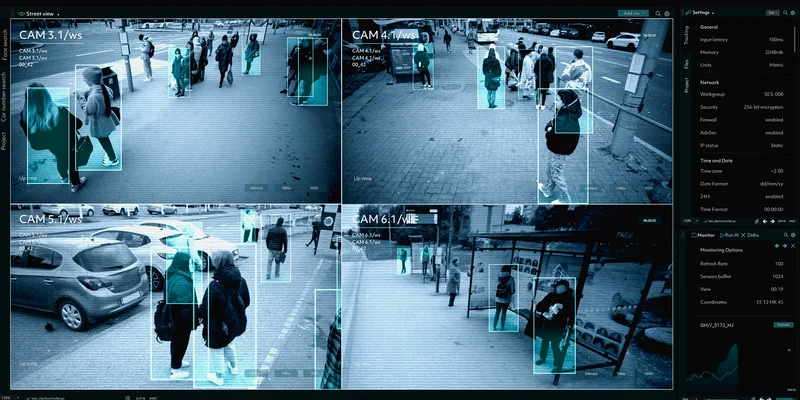Uber Lobbied Israeli, U.S. Ambassadors to Halt Criminal Probe Into the Company’s Israeli Operations
When a criminal investigation against Uber in Israel was launched, the company got nervous. “(I) don’t want our guys getting put in jail,” one senior Uber official wrote. He then detailed how the company should handle the situation: Hire someone to make phone calls at the highest level to persuade them to “calm the fuck down.” A former US Ambassador was hired. He contacted the US ambassador to Israel, Dan Shapiro, and the Israeli ambassador to the US, Ron Dermer. According to leaked emails, they were sympathetic to the company’s cause and expressed willingness to help. Dermer in response: Israeli officials listen to the arguments of American companies even if they have no intention of changing policy or using their influence. A Shomrim investigation.


When a criminal investigation against Uber in Israel was launched, the company got nervous. “(I) don’t want our guys getting put in jail,” one senior Uber official wrote. He then detailed how the company should handle the situation: Hire someone to make phone calls at the highest level to persuade them to “calm the fuck down.” A former US Ambassador was hired. He contacted the US ambassador to Israel, Dan Shapiro, and the Israeli ambassador to the US, Ron Dermer. According to leaked emails, they were sympathetic to the company’s cause and expressed willingness to help. Dermer in response: Israeli officials listen to the arguments of American companies even if they have no intention of changing policy or using their influence. A Shomrim investigation.

When a criminal investigation against Uber in Israel was launched, the company got nervous. “(I) don’t want our guys getting put in jail,” one senior Uber official wrote. He then detailed how the company should handle the situation: Hire someone to make phone calls at the highest level to persuade them to “calm the fuck down.” A former US Ambassador was hired. He contacted the US ambassador to Israel, Dan Shapiro, and the Israeli ambassador to the US, Ron Dermer. According to leaked emails, they were sympathetic to the company’s cause and expressed willingness to help. Dermer in response: Israeli officials listen to the arguments of American companies even if they have no intention of changing policy or using their influence. A Shomrim investigation.
Dan Shapiro (left) and Ron Dermer. Photos: Reuters, Shutterstock

Uri Blau
July 10, 2022
Summary


Listen to a Dynamic Summary of the Article
Created using NotebookLM AI tool
O
nly very rarely does the public get a glimpse at the efforts made by massive global companies to exert their influence over governments and regulators and the contact that they make with senior officials in the public service. The leaked Uber Files – which expose the activities of the giant ride-sharing company – reveal how an intermediary working on behalf of the company contacted the Israeli ambassador in Washington D.C. and the United States ambassador in Tel Aviv, asking them to help halt an investigation into the company that was being conducted by Israeli authorities.
The leak – 124,000 documents in total – was obtained by British newspaper The Guardian, which shared them with the International Consortium of Investigative Journalists (ICIJ) and, through that organization, with 180 journalists from 44 media outlets worldwide, including the Washington Post, Paris-based La Monde and the BBC. Shomrim, through journalist Uri Blau, is the Israeli representative on the project.
Among the revelations contained in the leak is that in various countries, including France, the Netherlands, Belgium, India, Romania, and Hungary, Uber operated a mechanism known as the “kill switch,” which allowed it immediately to delete any information that could be of interest to local authorities and regulators. As part of its efforts to get a foothold in Russia, the company made deals with oligarchs closely associated with Russian President Vladimir Putin, despite warnings from within the company. In France, the leak exposes the close relations and tight coordination with then-Minister of Economy, Industry, and Digital Affairs Emmanuel Macron in their joint struggle against local taxi drivers.
Uber currently operates in over 20,000 cities in 72 countries, and some 120 million people use its services. In a considerable number of locations where it operates, Uber, by employing aggressive business practices, brought about a decline in the use of traditional taxi services and, in some cases, their disappearance entirely. Last week, it was reported in financial newspapers that Uber is trying once again to enter the Israeli market following failed attempts in the past – attempts that are detailed in this leak.

Keeping our guys out of jail
Uber began operations in Israel in 2014, but the relatively small population and regulatory difficulties meant that, for the company, Israel was among the third tier of countries that it sought to penetrate. Paradoxically, efforts a year later by the Transportation Ministry to block Uber led the company to declare Israel a higher priority. In the summer of 2015, Uber's head of public policy for Europe, the Middle East, and Africa, Mark McGann, wrote an internal email in which he said that since “Tel Aviv is on fire,” he wanted to be CCed on anything to do with Israel.
The conflagration he was referring to was a criminal investigation launched in mid-2015 by the Transportation Ministry against Uber, its Israeli COE Yoni Greifman, and drivers who worked with the company. An internal email from the company’s legal adviser detailed what was happening: “Two investigators from the Transportation Ministry came to our Israel offices for two or three hours (…) Usually, investigators come accompanied by police officers, but out of respect for Yoni (Greifman), whom they have met before (…), they came unaccompanied.” According to the email, the investigators examined a large number of documents, made copies of some of them, and asked for details about the drivers who had signed contracts with the company and the types of vehicles they had registered. Greifman, the mail explained, was summoned to a further investigation, which would address “suspicions that Uber was operating a transportation company without authority or a permit from the Transportation Ministry.”
Uber officials took the investigation very seriously indeed. “ (I) don’t want our guys getting put in jail,” McGann wrote in an email to a colleague. In a different email, various courses of action were discussed, including talking to pro-Israel members of the U.S. Congress with whom the company had close relations. In the end, however, Uber brought out much bigger guns: it hired Covington, one of the leading law firms in Washington D.C., which employs more than 1,100 lawyers and has eight offices worldwide.
In an exchange of emails, Uber officials presented their Israeli problem as they saw it and explained the service they needed from Covington. “The Ministry of Transport has come crashing down on our heads, and they're threatening criminal charges against our GM. We need somebody to make a fairly high-level phone call (think Minister of Transport or higher) to urge folks to calm the fuck down at a minimum until after the election is over so we can have a proper conversation,” one of the emails says. Uber officials did not shy away from talking directly about the Transportation Ministry investigation, saying that, when it came to ridesharing, their operations in Israel fell in “a gray area,” but insisted that the company did not collect payment from passengers at that it paid its drivers by the hour and not by the journey. “(The Transportation) Ministry reacting way more aggressively than would normally be expected. Taxi is very plugged in in Tel Aviv… with elections in a couple of weeks looking for a temperature-cooling device more than a permanent solution.”
The person selected for the mission was senior Covington counsel and former top diplomat Stuart Eizenstat, whose previous roles included White House Domestic Affairs Advisor to President Jimmy Carter and U.S. Ambassador to the European Union. The Covington website says that Eizenstat’s work for the company “focuses on resolving international trade problems and business disputes with the U.S. and foreign governments.”
On a personal level, McGann did not have a good relationship with Eizenstat. He took issue with the style of emails that the former diplomat would send and made fun of him with colleagues. “As a person, unpleasant, gruff dude,” McGann wrote in one email, “as a professional, quite effective.”
Indeed, Eizenstat did prove to be effective and his activities, as reflected in the emails, provide a rare example of the behind-the-scenes machinations to which the public is hardly ever exposed. According to the leaked internal emails, Eizenstat was very quickly in contact with Dan Shapiro, who was the American ambassador in Tel Aviv at the time, and with Ron Dermer, Israel’s envoy in Washington D.C.

At least according to Eizenstat’s reports back to Uber officials, communications with these two diplomats were informal and friendly. According to one of Eizenstat’s briefings, Dermer asked to send the background information to his private email address “to assure faster processing by him.”
In a description of one such conversation between the two, Eizenstat wrote that he had asked Dermer to get the Foreign Ministry involved in halting the Israeli investigation. The same information appears in a background document that he claims were sent to the ambassador, in which it was written that the Foreign Ministry must intervene to halt the investigation.
“Dermer was sympathetic, is a free-market advocate, and interested in encouraging investment in Israel. Said he suspected it was a pre-election effort to win support from the cab driver’s union,” was Eizenstat’s summary. “He promised to ‘get right on it,’ ‘get a sense’ of what was behind the MOT investigation, and to more broadly ‘check-into’ the whole situation.”

The person selected for the mission was senior Covington counsel and former top diplomat Stuart Eizenstat, whose previous roles included White House Domestic Affairs Advisor to President Jimmy Carter and U.S. Ambassador to the European Union
According to the emails, the conversations with the American ambassador also went well. Uber’s guidelines were shared with Eizenstat, who in turn shared them with Shapiro: It is a key interest of the United States that American companies are treated fairly; the United States calls on the Transportation Ministry to engage in a dialog with Uber before taking any unfair measures against the company and its employees; Uber should not be a victim of the upcoming Israeli election, and the Transportation Ministry must refrain from taking any decision that would restrict the policy that the next government might want to promote.
In a briefing that Eizenstat sent to his client, he wrote that Shapiro had told him that “‘We want to help a U.S. company’ but need to be careful when it is a criminal case.” Eizenstat then wrote that he “explained that at this point it was only a criminal investigation and that no one has been charged.”
Shapiro asked exactly where Uber was registered, whether it was, in fact, an American company [it is registered in the Netherlands – U.B.] and whether any American citizens were in danger. Eizenstat looked into the matter and responded that Greifman was a dual Israeli American citizen. According to Eizenstat’s email, Shapiro agreed to look into the matter with embassy staff and added that there was no need to involve the State Department. He also offered to meet with Uber officials in Israel. The leak also includes exchanges of emails within Uber setting up such a meeting.
The impression given by Eizenstat’s emails is that both the ambassadors were sympathetic to him and Uber’s complaints. At the same time, it is important to note that the emails do not make it clear what, if anything, Dermer and Shapiro did after these exchanges.

According to Eizenstat’s email, Shapiro agreed to look into the matter with embassy staff and added that there was no need to involve the State Department. He also offered to meet with Uber officials in Israel
Two years after the exchanges with the ambassadors, in mid-2017, criminal charges were brought against Uber, Greifman, and several other company officials in Israel, accusing them of operating without a license to transport passengers. The indictment was based on material collected in 2016 and 2017 and made no mention whatsoever of the 2015 investigation. An examination of the material included in the investigation shows that the indictment is based almost entirely on the work of “volunteers” from a rival company – Gett, formerly known as Gett Taxi – who placed orders for cars with Uber. Lawyers representing Uber were furious at the cooperation between the Transportation Ministry and a rival company and argued that the indictment was politically motivated and was selective enforcement. In the end, the ministry rescinded the indictment against Uber drivers and suspended proceedings against Greifman and the company in exchange for payment of a fine of 112,000 shekels.
Dermer: I have never lobbied for an American company
In his response, Dermer stated that he has never lobbied the Israeli government on behalf of an American company. He added that, on occasion, American companies contact the Israeli embassy in Washington over matters relating to their business. Because of the strategic relationship between Israel and the United States, Dermer added, Israeli officials listen to the arguments of these companies even if they have no intention of changing policy or using their influence – and there is nothing wrong with this. Moreover, he claimed, strengthening ties with the private sector is part of the embassy’s mission.
In relation to Uber, Dermer said that he did not recall the details since so much time had gone by and that his involvement, if there were any, was minimal. “I believe that I met with representatives of the company at the embassy in Washington on one occasion, but I do not remember what issues were raised there,” he said. He added that, in all probability, he relayed the information, and that was where his involvement ended.
Dermer also said that he has known Eizenstat for almost 40 years, and “he was even at my bar mitzvah.” He pointed out that he does not remember that Eizenstat represented Uber but that, if he did, he would have listened to what he had to say. Given their long personal acquaintance, Dermer says, it would not be out of the ordinary for Eizenstat to send him an email to his personal address. However, he added, “to the best of my memory, I never asked him or anyone else to send me something to my personal email address so that I could help them more quickly.”
“At no stage, during my tenure as ambassador to the United States did I work on behalf of Uber or any other company. It is simply untrue. Throughout my service, I only worked to promote the interests of the State of Israel,” he said.
Shomrim sent a series of specific questions to the Transportation Ministry regarding its investigation and the collaboration with Gett. The ministry’s response included a reference to a recently approved emergency plan for dealing with traffic congestion and the ministry’s support for ridesharing. With regard to the specific questions submitted, the ministry said that “as a rule, we have no intention of responding to the operational methods of the ministry’s supervision and enforcement officials – certainly not with regard to any specific case.” Gett did not respond to requests for comment.
Uber’s Israeli representatives were asked a series of detailed questions, but the company opted to respond with a general statement that is designed to be published by all the media outlets involved in the Uber Files project. Jill Hazelbaker, a spokeswoman for Uber, acknowledged “mistakes” and “missteps” that culminated five years ago in “one of the most infamous reckonings in the history of corporate America.”
She said Uber completely changed how it operates in 2017 after facing high-profile lawsuits and government investigations that led to the ouster of Kalanick and other senior executives. “When we say Uber is a different company today, we mean it literally: 90 percent of current Uber employees joined after Dara [Khosrowshahi] became CEO” in 2017, Hazelbaker said in a written statement. “We have not and will not make excuses for past behavior that is clearly not in line with our present values.”
She said that Uber has not used a kill switch to thwart regulatory actions since 2017 and that “no one at Uber has ever been happy about violence against a driver." The company dismissed any suggestion that it received special treatment from Macron or his cabinet and emphasized that no one who works at Uber today was involved in building relationships with Russian oligarchs.
Greifman told Shomrim, “I have no idea where you’re getting this information. I have no idea what you are talking about in most of these cases.”
Shomrim sent Dan Shapiro several requests for comment, but no response was forthcoming.













